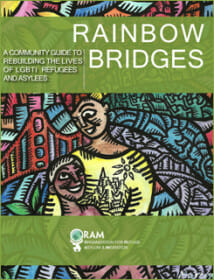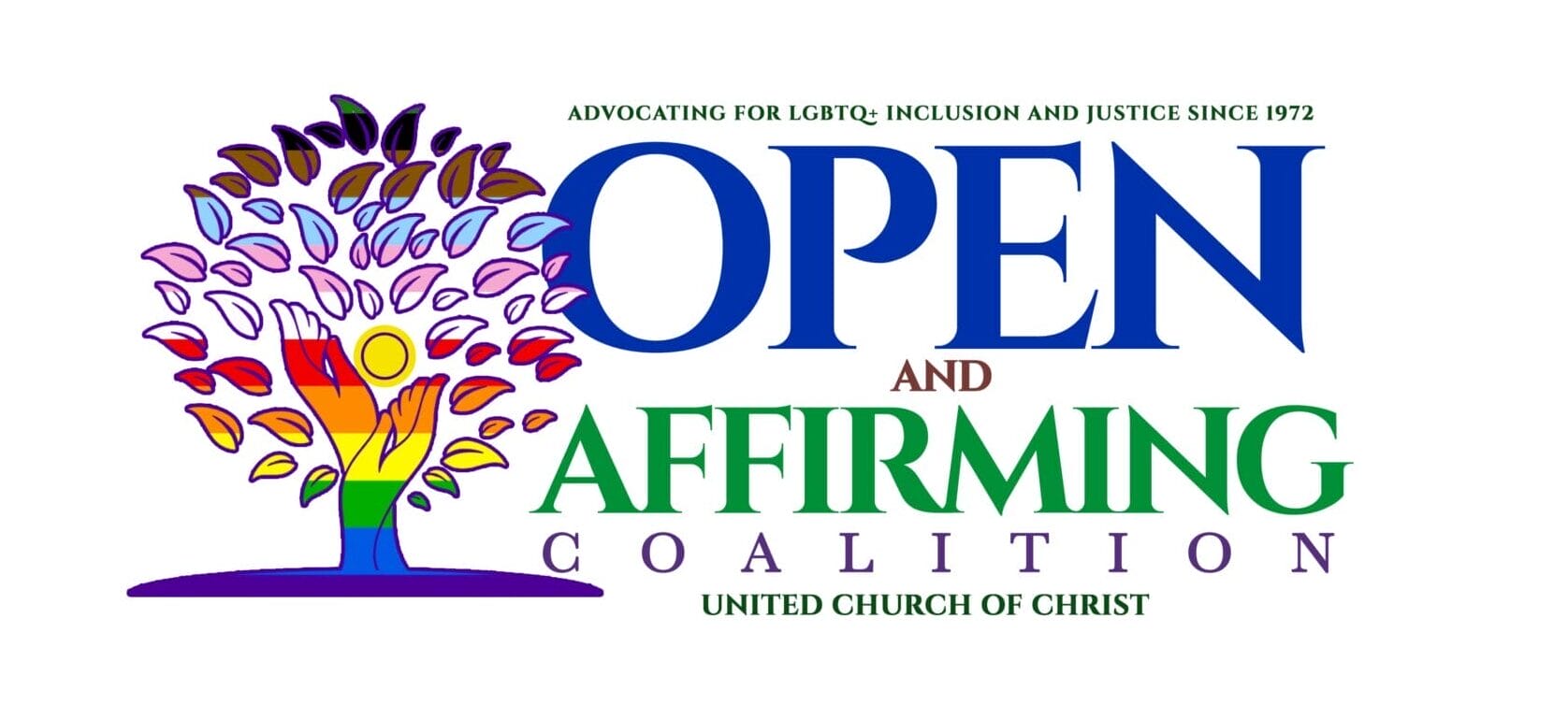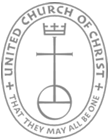“The basic idea of welcoming immigrants to our shores is central to our way of life — it is in our DNA. We believe our diversity, our differences, when joined together by a common set of ideals, makes us stronger, makes us more creative, makes us different. From all these different strands, we make something new here in America.”
~President Barack Obama, July 4, 2014
Trauma Alert: Violence and Sexual Violence Stories
“Lesbian, Gay, Bisexual, Transgender, and Intersex (LGBTI) Individuals face discrimination due to their sexual orientation or gender identity and, in many countries, consensual same-sex acts are criminalized. These individuals may be targeted, harassed, hurt, or even killed in their home countries or country of refuge. PRM [The bureau of Population, Refugees, and Migration] works with UNHCR and NGOs to train staff on issues specific to displaced LGBTI populations, funds targeted protection and assistance programs, supports ongoing research, and ensures that LGBTI refugees resettled in the United States receive appropriate services and support,” reports The United States Department of State. However, as the borders have closed over the past four years, it has become more challenging to find refugee status in the United States.
Isolated and brutalized, criminalized by governments, shunned by families, and ostracized within the community at large, LGBT refugees and asylum-seekers are often denied asylum because their persecution is difficult to prove. To claim refugee status, they often have to come out even when coming out means prosecution if their case for asylum is denied.
“To be granted asylum, queer refugees need to prove to immigration authorities and judiciaries that they are queer, that they fear persecution on the grounds of their sexuality, and that such fear is well-founded,” reported (In)credibly Queer: Sexuality-based Asylum in the European Union in 2015. While their study focused on the experiences of refugees who found asylum in the European Union, the stories from the refugees regarding the risks within the world’s immigration systems are universal.
Throughout Latin America, Africa and Asia, LGBT people are denied basic protections under the law and are frequently subjected to violence, arrest, imprisonment and even death.
In recent decades, LGBT refugees and asylum-seekers have journeyed to the United States seeking sanctuary from the discrimination and violence they encounter in their country-of-origin. ONA churches can join with other congregations, non-profit organizations and the LGBT community in their towns and cities to sponsor asylum-seekers and to raise awareness about their lives. Additionally, churches can respond to those who have been detained after asking for asylum at the nation’s southern border.
LGBT refugees, asylees and asylum-seekers are among the most vulnerable people in the United States today. Unlike most people who flee their homes for safety, these individuals are rarely supported by their extended families or fellow expatriates. Because of their nonconforming sexual orientation or gender identity, they are often excluded from the religious and immigrant communities that form the social safety net for most newly arrived refugees and asylees. Most churches will not help them. Without a support network, LGBT refugees struggle to find their way through a complex maze of employment, housing and social service systems.
In 2011, the UCC’s General Synod adopted this resolution on international LGBT human rights. It’s a good resource for your congregation to begin learning about the unique issues that face those who seek asylum.
Videos
“When I got asylum it was amazing. I felt protected, like in the future I will have a place to call home. Coming here has allowed me to realize my full potential… and saved me from suicide. Refugees are some of the strongest people. Not only did they survive the country they came from, but they have the courage to learn the process, to speak up, to pursue.”
~ Lesbian refugee Alena Sandimirova, Russia
Mike’s Story
“They all told me that I needed to change, that something was wrong with me.
Mike and his partner, Tom, come from a country where homosexuality is punishable by law and sexual minorities are stigmatized by society.
In our country we had to keep our relationship a secret and it was difficult to hide such a big part of ourselves,” Mike said. “I became depressed and even went to speak to different psychologists, but this made it worse. They all told me that I needed to change, that something was wrong with me.
Mike began receiving threatening messages when Tom’s family, that had ties with an extremist group, discovered their relationship. Tom’s family also forbade him from leaving his home.
Around that time, many gay men were being arrested in the cafes and bars that we would often go to. We were so scared and it became practically impossible to see each other.
That’s when we decided to flee the country. We chose Malaysia because it was easy for us to get tourist visas, but once our visas expired, life in Malaysia became difficult.
Going to Malaysia served to protect Mike and Tom from continued persecution in their home country, but it is not an easy place for sexual minorities. In fact, same-sex relations are punishable by up to 20 years in prison, and enforcement of these laws is often accompanied by physical and sexual abuse.
Even in Malaysia, Tom and I have to keep our relationship a secret. We live in an area where a lot of people from our country live and I constantly worry that someone will find out that we are a couple.
Malaysia, like Thailand, is not party to the 1951 Refugee Convention and has no domestic legislation governing refugees. Urban refugees in Malaysia do not have access to safe and lawful employment, formal education and equal protection of the law. They are at constant risk of arrest, detention and exploitation.
Even though we both work very hard, we struggle to earn enough money to support ourselves. Tom works long hours in a restaurant and I work in a shop. To make things worse, I’m often stopped by traffic police and they force me to pay them bribes and threaten to send me to immigration detention.
Launched in 2014, Asylum Access Malaysia’s (AAM) refugee legal aid program assists refugees to navigate the UNHCR process. AAM also offers workshops to provide basic legal and practical information to help refugees.
A year ago, a friend told me about AAM and encouraged me to go there. I didn’t know much about UNHCR and thought refugees were only people who had fled from war.
At first, I wasn’t sure I could trust my lawyer, but she was friendly and professional. I could tell she wasn’t judging me and could understand my situation.
My lawyer helped me explain this and all my other problems to UNHCR and she even came along to our interviews. She helped us understand how my situation made me a refugee and how applying for protection could help us. Having our lawyer there made us more confident and relaxed.
My lawyer also asked for our case to be fast- tracked. Now we’re in the resettlement pipeline and hope to move to a country where we can openly be together.
AAM is transforming the human rights landscape for refugees in Malaysia through direct legal services, Know-Your-Options trainings, and engagement with UNHCR and other stakeholders in Malaysia’s refugee rights movement.”
Additional Resources
Guides

Stronger Together: Best Practice Guide for Supporting LGBT Asylum Seekers in the United States (2015) was produced by the LGBT Freedom Asylum Network in partnership with The National LGBTQ Task Force and the Human Rights Campaign Foundation. It features short illustrative stories, a code of ethics, a bibliography, and a short directory of helpful organizations.
Rainbow Bridges (2012), published by ORAM (Organization for Refuge, Asylum and Migration) this in-depth resource is for churches and other non-profits that want to sponsor LGBT asylum-seekers in their community.

Books
Sea Prayer (2018) by Khaled Hosseini is a short book for people of all ages describing the experiences of a father and son seeking refugee status from Syria. While it is not specific to LGBTQIA+ people, the author of The Kite Runner has written a powerful, illustrated book.
Queer and Trans Migrations: Dynamics of Illegalization, Detention, and Deportation (2020) by Eithne Luibheid (Editor), Karma R. Chavez (Editor, Contributor), Andrew J. Brown (Contributor), Julio Capo (Contributor), Anna Carastathis (Contributor), Jack Caraves (Contributor), Ryan Conrad (Contributor), Elif (Contributor). “The academics, activists, and artists in the volume center illegalization, detention, and deportation in national and transnational contexts, and examine how migrants and allies negotiate, resist, refuse, and critique these processes.”
Imagining Latinx Intimacies (2020) by Edward Chamberlain addresses the ways that artists and writers resist the social forces of colonialism, displacement, and oppression through crafting incisive and inspiring responses to the problems that queer Latinx peoples encounter in both daily lives and representation such as art, film, poetry, popular culture, and stories. Instead of keeping quiet, queer Latinx artists and writers have spoken up as a way of challenging stereotypes, prejudice, and the lived experiences of estrangement and physical violence.
LGBTI Asylum Seekers and Refugees from a Legal and Political Perspective: Persecution, Asylum and Integration (2019) by Arzu Güler (Editor), Maryna Shevtsova (Editor), Denise Venturi (Editor). This book addresses the ‘three moments’ in lesbian, gay, bisexual, transgender and intersex (LGBTI) asylum seekers’ and refugees’ efforts to secure protection: The reasons for their flight, the Refugee Status Determination process, and their integration into the host community once they are recognized refugee status.
Transmovimientos: Latinx Queer Migrations, Bodies, and Spaces (2020) by Ellie D. Hernández (Editor), Eddy Francisco Alvarez (Editor), Magda García (Editor) “This anthology unveils a critical perspective with the emphasis on queer, trans, and gender nonconforming communities of immigrants and social dissidents who reflect and write about diaspora, migratory movements and navigate geographical and embodied spaces across gendered and racialized contexts, all crucial elements of the trans-movements taking place in the United States.”
![Transmovimientos: Latinx Queer Migrations, Bodies, and Spaces (Expanding Frontiers: Interdisciplinary Approaches to Studies of Women, Gender, and Sexuality) by [Ellie D. Hernández, Eddy Francisco Alvarez, Magda García]](https://m.media-amazon.com/images/I/41G6GYODI5L.jpg)
UCC Documents
UCC position on LGBT rights: Supporting International Human Rights Related to Sexual Orientation and Gender Identity was adopted by the 28th General Synod of the UCC in Tampa, Florida on July 1st – 5th, 2011.
Articles
“Do LGBTQ+ Asylum Seekers Have a Future in the United States?” (2020) explore Neela Ghoshal and Yael Schacher for The Advocate.
Serving LGBTQ Immigrants and Building Welcoming Communities (2018) by Sharita Gruberg, Caitlin Rooney, Ashe McGovern, Shabab Ahmed Mirza, and Laura E. Durso for The Center for American Progress.
Mental Health in LGBT Refugee Populations (2016) recognizes that in spite of some advances, many nations continue to stigmatize, criminalize, and legitimize abuse of LGBTQIA+ communities. The American Journal of Psychiatry Residents’ Journal article highlights some of the mental health issues that happen as a result of this trauma.
US asylum shutdown leaves LGBTQ+ people stranded and in danger in Mexico. (2020) by William Martin III for The New Humanitarian. “There are no official figures, but four shelters in Mexico – in the northern cities of Tijuana, Mexicali, and Ciudad Juárez – report housing roughly 140 LGBTQ+ asylum seekers. This doesn’t include: queer migrants who choose to not disclose their sexual preferences while living in non-LGBTQ+ shelters; queer migrants who live alone to protect their children; or queer migrants who live alone while engaging in survival sex work.”
LGBTQ Immigrant Rights and Green Card Opportunities for Same-Sex Couples (2020) by Citizen Path explores the history and current situation for people seeking asylum in the Untied States.
Websites
Lesbian, Gay, Bisexual and Transgender (LGBT) Immigrant Rights on the Immigrant Legal Resource Center page highlights some of the unique challenges immigrants often face due to their sexual orientation or gender identity.
The LGBT Asylum Project provides visibility and recognition of the diversity of LGBT asylum-seekers, helping organizations welcome refugees with inclusion and hope.
Rainbow Railroad believes that governments around the globe should enact and enforce laws and policies that protect LGBTQI individuals and enable them to live in freedom and safety in their own country. However, until that day arrives, our organization is focused on providing solutions for LGBTQI people who need immediate assistance because they are facing a serious threat to their lives and safety.
LGBT Asylum Support Task Force is a ministry of Hadwen Park Church (ONA #547) and a community-based organization dedicated to supporting and empowering LGBTQI individuals who are seeking asylum in the United States.
LGBT Freedom and Asylum Network sponsored the resource guide Stronger Together. In addition, they provide information about LGBT-rights campaigns as well as immigration reform projects.
Films/Videos
Unsettled: Seeking Refuge in America (2020) follows the stories of refugees and asylum-seekers who flee persecution in their countries of origin to seek safer lives in the U.S. Check with producers to arrange a viewing.
God Loves Uganda (2013) is a powerful exploration of the evangelical campaign to change African culture with values imported from America’s Christian Right. For churches that want to understand the forces that have driven thousands of LGBT people into exile. Click on the link to learn how to host a screening in your community.
LGBT Asylum: Three Stories (2013) Immigration Equality’s LGBT Asylum Program represents more than 400 LGBT people fleeing Russia, Uganda and other countries every year. Our LGBT Asylum Program matches LGBT and HIV-positive individuals with top law firms, pro bono, and our own 8-person legal team handles the most difficult cases. These are three of our clients’ stories.
Fleeing Home – LGBT Refugees’ Stories is an ongoing project of the Salzburg Global LGBT Forum, which was founded in 2013 to advance the human rights of LGBT people and communities around the world. Fleeing Home features LGBT refugees share their stories of seeking asylum and helping others within the LGBT community.
Rainbow Railroad’s Story. The Rainbow Railroad helps LGBT people escape state-sponsored violence.

